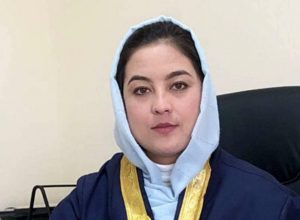A Message for the Presence of Women in the Negotiations To the Taliban; Women are not the Second Sex

A number of women’s rights activists believe that the presence of female representatives in peace talks could send a message to the Taliban that women, as half of the country’s population, have equal rights as men in all areas.
As one of the Taliban’s main problems is the issue of women’s rights, the presence of women representatives in peace talks and their direct dialogue with the Taliban team is a major and effective step in understanding women’s demands and conveying their message to the Taliban. “The Taliban said in conversations that they recognize Islamic rights for women. When all applicable laws and the constitution of the country are derived from Islam, what do they mean by Islamic rights?” This shows that the Taliban have not yet accepted the presence of women as a social reality and insist to consider them as the second sex. “The presence of women representatives in peace talks is a sign for the Taliban to know that we are not the second sex, that we are citizens of Afghanistan, that we are educated and working, and that we are advocating for women’s rights in dialogue.” Said Mrs. Ghori.
CSHRN: Given the Taliban’s view of women, do you think that the peace negotiations will have a positive outcome?
Ghori: In my opinion, the negotiations have not been accepted by the people so far, and apparently the government has shown great flexibility against the Taliban. However, as a victim of war whose mother was killed by the Taliban, I am glad to hear at least that th deprivation of Afghan people and women in particular isdelivered to the Taliban. Today’s Afghan women are different than Afghan women twenty years ago. Now, women have right to and access to education as well asemployment. We have female judges, prosecutors, teachers, and even Ambassadors. The Taliban should know that a woman who was abused in a remote province like Ghor, who had no awareness of her rights and even endured the pain of giving birth at home, is now aware of her rights and the current possibilities of life. The presence of women in peace talks, representing a large section of society, presents a new image of Afghan women for the Taliban; women who areempowered and wise are aware of their rights.
CSHRN: What issues about women should be discussed in the peace talks?
Ghori: My message, and that of people like me who have lost family members, and loved ones in war and suffered from the Taliban rule, is that Afghan women will continue to study and work. We call on the Afghan government’s negotiating team to address this message to the Taliban. The right of women to education and employment, their economic concerns and demands and their presence in society are very important issues that should be the red line of the government’s team thein peace negotiations.
CSHRN: How do you assess the capacity of the government negotiating team to represent the people?
Ghori: A number of the team members are capable of representing the Afghan people. They possess the necessary education, wisdom and knowledge of the situation in the country to do so, including Miss Kufi who has lived and worked in Afghanistan. However, as we see, there are those who do not have enough experience and information about the situation in the country, and this can damage the peace negotiations.
CSHRN: How do you think the Taliban’s involvement in the government will affect women’s activities?
Ghori: I think the Taliban have a problem with the principle of democracy and are opposed to human rights, especially for women. As a civil society activist, I am concerned that if the government continues to show flexibility with the Taliban, a dark future will await Afghanistan.
CSHRN: Would it be acceptable to you if restrictions were imposed on women’s rights?
Ghori: As a woman who has studied and is currently working in this country, it is not acceptable for me to retreat to the dark era of the Taliban.
CSHRN: What guarantees the Taliban’s commitment to a possible agreement?
Ghori: Unfortunately, there are no guarantees at the moment. These days, although the government is negotiating with the Taliban, war continues in some parts of the country. Maybe there are conversations behind the scenes that people are unaware of. In Afghanistan, we deal with different waring groups led by the Taliban. The first group is the Talibanwho are fighting for their religious values and are against issues such as the presence of Americans in the country and the issue of women’s rights. The other group, however, is the Talibanwho are fighting only for monetary interests, and the reason for joining this group is poverty.
According to Ms. Ghori, the international community must act to ensure that the Taliban’s commitments are met.